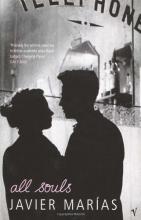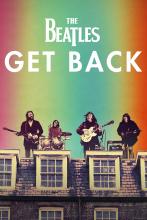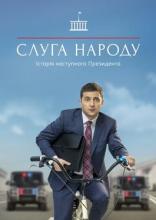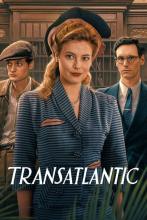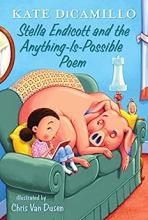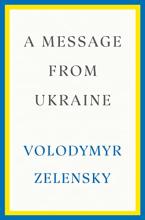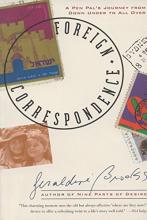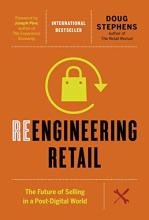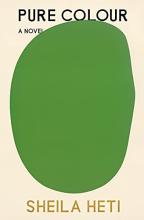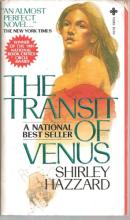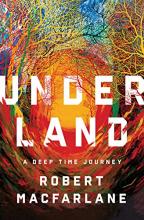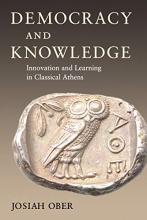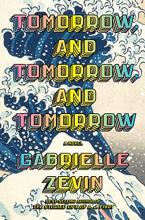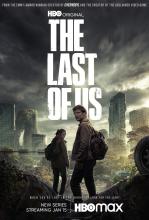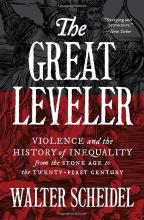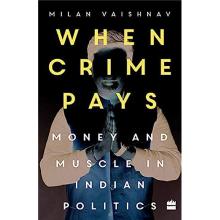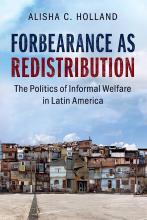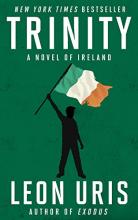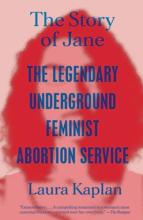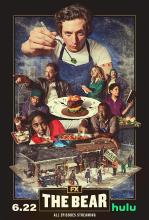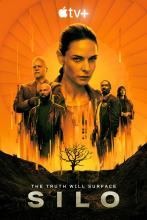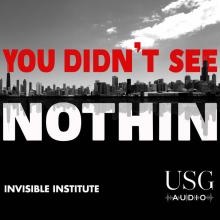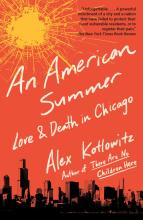Faculty Summer 2023 Picks
Omri Ben-Shahar
Leo and Eileen Herzel Professor of Law, Kearney Director of the Coase-Sandor Institute for Law and Economics
Read: All Souls, by Javier Marías. Marías is a virtuous writer, deviously peeling off the nuance of human relations. The book is set up at Oxford and captures the absurdities of academic life (“Oxford is, without a doubt, one of the cities in the world where least work gets done, where simply being is far more important than doing or even acting.”) Somehow, almost without much of a plot, it tells a riveting story.
Watch: The Beatles: Get Back. This is a six-hour miniseries on Disney+, following the Beatles during the two-week period in which they completed the Let It Be album and performed the famous London rooftop concert. If, like me, you are one of these people who are still infatuated with John and Paul, the footage is breathtaking. If not, you will be bored out of your mind. It offers unparalleled insight into the Beatles’ relationships in that last year, the birth of some classic songs, and why their break-up was inevitable.
Mary Anne Case
Arnold I. Shure Professor of Law
I recommend the Ukrainian TV series Servant of the People, now available with English subtitles on Netflix and YouTube. In this satirical comedy, whose first episode dates from 2015, Volodymyr Zelensky, now actually president of Ukraine, but then, though trained in law, a comedian and head of a TV comedy production company, stars as a history teacher unexpectedly elected to the presidency of Ukraine after a video of him ranting against political corruption goes viral. Life then took its cue from art, such that by 2019 Zelensky was actually elected president, facing the same culture of corruption as did his TV character. Would make great compare-and-contrast viewing with The Apprentice, another TV show that led to a presidency. And, even apart from its historical significance, can be fun to watch.
Bridget Fahey
Assistant Professor of Law
I have a newborn, so we have plenty of time for TV. We’re particularly enjoying Transatlantic, the Netflix series about the heroic work of the Emergency Rescue Committee during World War II. The tale is a somber one of survival in the harshest conditions, but the series also pauses to capture the everyday moments of joy that even the worst events couldn’t extinguish. Episode three’s surrealist birthday party for Max Ernst is pure delight. (That part of the series reminds me of the similarly themed vignettes in Men in Dark Times, a collection by Hannah Arendt, who was helped by the Emergency Rescue Committee and appears a few times in the show.)
To ease the difficulty for my son Jack (five) of having a new sister, we’ve also spent lots of time reading and rereading (and rereading) his favorite books. One that we all adore is Stella Endicott and the Anything-Is-Possible Poem, by Kate DiCamillo. Being a kid is both hard and wonderous; this book captures that perfectly.
Catherine Copeland Gryczan
Lecturer in Law, Assistant Director of the Institute for Justice Clinic on Entrepreneurship
A Message from Ukraine by Volodymyr Zelensky: This book contains select speeches Volodymyr Zelensky has made to other nations and leaders about the urgency and magnitude of the Russian invasion and war on Ukraine. President Zelensky’s recall of and comparison to other significant moments in our collective histories is compelling. Having visited Ukraine during peaceful times and having a family member born in Ukraine, I am deeply interested in and moved by his words and hoping for restored peace.
Foreign Correspondence by Geraldine Brooks: I heard Geraldine Brooks speak about another of her novels at the Tulane Book Festival in New Orleans in March this year. I was intrigued about her inspiration for this book drawing from letters she had written and received from pen pals around the globe while growing up in Australia. She found the letters among items her father had saved after his passing. She seeks out her correspondent friends after finding the letters to see how their life journeys have developed since last writing to each other. Geraldine provides a glimpse at the lives of others in a unique way through her rich storytelling.
Reengineering Retail: The Future of Selling in a Post-Digital World by Doug Stephens: A client of the IJ Clinic shared this book with our team. It was very interesting to learn about the evolution of retail and the push toward experiences in retail settings. Our client, The Record Track, is an inspiring business that is in the process of redesigning their traditional business on the South Side of Chicago by bringing live music experiences to the community with innovative interactive technology. They also are seeking opportunities to develop neighboring vacant properties adjacent to their business to better their neighborhood.
Aziz Z. Huq
Frank and Bernice J. Greenberg Professor of Law
Pure Color, Sheila Heti: This is a novel of ideas intertwined with a personal narrative of grief over a parent’s death. It is startling, richly written, and ultimately elusive in a way that lingers in the mind.
The Transit of Venus, Sheila Hazzard: Hazzard’s most feted novel routinely appears on best novels of the twentieth century. For once, this accolade is richly deserved. Hazzard’s novel is an immersive and moving account of two sisters’ peripatetic lives across the twentieth century.
Saul Levmore
William B. Graham Distinguished Service Professor of Law
I just finished Underland, by Robert MacFarlane, and I learned something and was constantly intrigued. I would not, personally, go deep underground for weeks, or go down to examine the ocean floor, but every chapter and excursion is fun and interesting to hear about from an author who does such explorations for a living.
I also highly recommend a more academic book, Democracy and Knowledge: Innovation and Learning in Classical Athens, by Josiah Ober. It’s a masterful book about ancient Greece and how innovation derives from people organized in groups in order to work and advance by combining their knowledge and experiences. It is full of interesting facts about various ancient city-states, and I promise it will make every reader who likes these subjects the cause of eye rolls at any bar or dinner party. But it’s great. Unfortunately, you need to borrow or buy it because it is not available on Audible for listening.
Joshua C. Macey
Assistant Professor of Law
I’m reading Tomorrow and Tomorrow and Tomorrow, by Gabrielle Zevin. It is about two childhood friends who start a video game development company together. But it’s also a beautiful story about obsession, betrayal, the creation of art, and escapism.
I just started watching The Last of Us, which is a show about two humans who survive a fungal plague that turns people into zombies. The main characters are Joel (played by Pedro Pascal), and Ellie (played by Bella Ramsey). Sorry to give away a minor spoiler from the second episode, but Ellie seems to be immune from the fungus. The show tracks them as Joel smuggles Ellie out of a quarantine zone and across a post-apocalyptic United States.
Anup Malani
Lee and Brena Freeman Professor of Law
I am reading a few books just now. One is The Great Leveller, by Walter Scheidel, because I wrote a paper on how inequality in India fell during the pandemic and Scheidel has a theory of why calamities (e.g., pandemics, wars, etc.) compress incomes. The book is a stark contrast to the limited success of policy reforms at curbing inequality.
I am also reading Darwin's Cathedral, by David Wilson, to help me understand group selection theory in evolution. It is part of a long run project to understand cultural evolution and competition.
I recently read When Crime Pays, by Milan Vaishnav, about why so many Indian politicians are traditional criminals (i.e., not bribe-takers but murderers and kidnappers). I read it in part to understand campaign finance in low-income countries like India, and in part to understand the attraction of Donald Trump in the US. Criminality—to rule breaking—is a credible signal of something voters value. It highlights the limited ability of traditional (non-felonious) politicians to keep promises to fight for voters.
Also on my Kindle is Alisha Holland's Forbearance as Redistribution. The title says it all. Governments pass many laws, but only have the capacity to enforce a few of them. This enables prosecutorial or police discretion. How do these officials exercise this discretion? Holland argues that, in low-income countries, politicians do it to redistribute wealth, which in turn generates votes. Adam Chilton and I observed the same thing in India, where we are studying the growth of slums. Politicians protect quarters from eviction to earn their votes.
Finally, I am listening to Water Durant's series The Story of Civilization on Audible. While not quite politically correct, the first volume, Our Oriental Heritage, is thought-provoking. I think it would be fun to host a Greenberg Seminar on this. Even better, invite Saul Levmore to join. Sit back and enjoy the fireworks.
John Rappaport
Professor of Law
I’m listening to 60 Songs That Explain the '90s, a podcast on Spotify. For anyone who had formative years during the 1990s, the show is a perfect mix of nostalgia and education. I learn new things about songs I know well and discover what other people were listening to while I was deep into grunge and alternative rock. It’s terrific.
Gerald N. Rosenberg
Associate Professor Emeritus, Political Science
I recommend Trinity, by Leon Uris. I listened to the audiobook read by John Keating. The book is the story of Ireland in the late 19th and early 20th century. Trinity is a powerful reminder of the cruelty of English colonialism and the ways ethnic and religious hatred are taught and nurtured. With memorable characters and a compelling narrative, Uris weaves a magical tale of the intersection of Irish Catholics, Irish Protestants, and the British (the trinity). The reader adds a lyrical quality to the audiobook.
Geoffrey R. Stone
Edward H. Levi Distinguished Service Professor of Law
I would recommend Laura Kaplan's The Story of Jane: The Legendary Underground Feminist Abortion Service (2022). It is especially powerful after Dobbs because it's about a famous pre-Roe illegal abortion service run by students at the University of Chicago.
Lior Jacob Strahilevitz
Sidley Austin Professor of Law
The Bear (Hulu) is really extraordinary, with a second season worthy of three Michelin stars. The acting is so strong and smart across the board, the dialogue is witty and realistic, and the characters are all three-dimensional. The second season is filled with genuinely moving moments; it’s up there with masterpieces like Andor and The Wire in terms of its emotional depth. And, of course, each episode of The Bear is a love letter to the city of Chicago, so watching it with some knowledge of the city and its restaurants only enhances the experience. I also enjoyed Silo (Apple TV+), which is a well-done and often gripping post-apocalyptic show filled with intriguing mysteries. The first season ends on a terrific cliff-hanger, and I started reading Hugh Howey’s Silo series (beginning with Wool) because the narrative was engrossing and I did not want to wait until season two to see what happens next. Wool has been a worthwhile read so far, and I’m looking forward to starting Shift, the second book in the series.
Emily Underwood
Associate Clinical Professor of Law, Bluhm-Helfand Director of the Innovation Clinic
I recommend a podcast called the Jordan Harbinger Show, not so much for his mailbag and advice-style episodes, but for his interview-format episodes, which are great. He interviews experts in a wide range of fields, but his main topic areas are social science and psychology, deep tech, entrepreneurship, and foreign affairs. He’s a talented podcast host, his guests are fascinating, and I learn something new every time I tune in. He’s also a recovering corporate lawyer and that definitely informs his perspective and approach to podcasting.
Erica Zunkel
Clinical Professor of Law, Associate Director of the Federal Criminal Justice Clinic
I’ve been riveted by the podcast You Didn’t See Nothin’, which is co-produced by the Southside’s own Invisible Institute. The podcast is a fascinating look at segregation, race, and crime in Chicago, and how past events can reverberate many years in the future. It centers on a hate crime that took place in the late 1990s in the Bridgeport neighborhood—a young Black boy was beaten within an inch of his life by a group of white teenagers. The podcast investigates that case, as well as how the crime and related events impacted the narrator, Yohance Lacour. Well worth a listen.
An American Summer: Life and Death in Chicago by Alex Kotlowitz. Kotlowitz is an incredible storyteller and An American Summer is no exception. I’ve loved Kotlowitz’s work since I read one of his first books, There Are No Children Here, which chronicles two Black boys growing up in Chicago’s Henry Horner Homes in the 1980s. An American Summer starts by picking back up one of the brothers from There Are No Children Here to highlight the devastating toll of poverty and gun violence on Black and Brown kids and families in Chicago.
